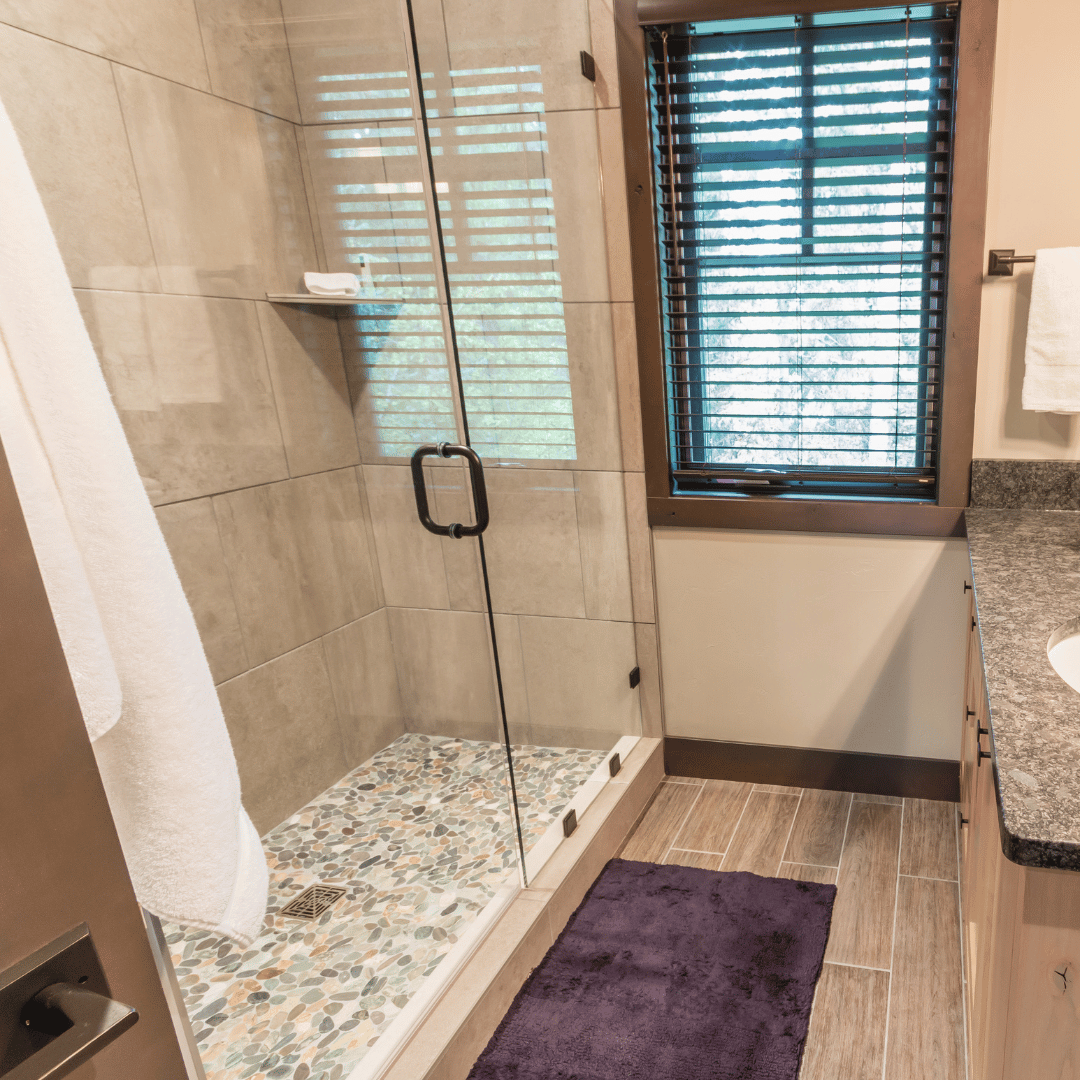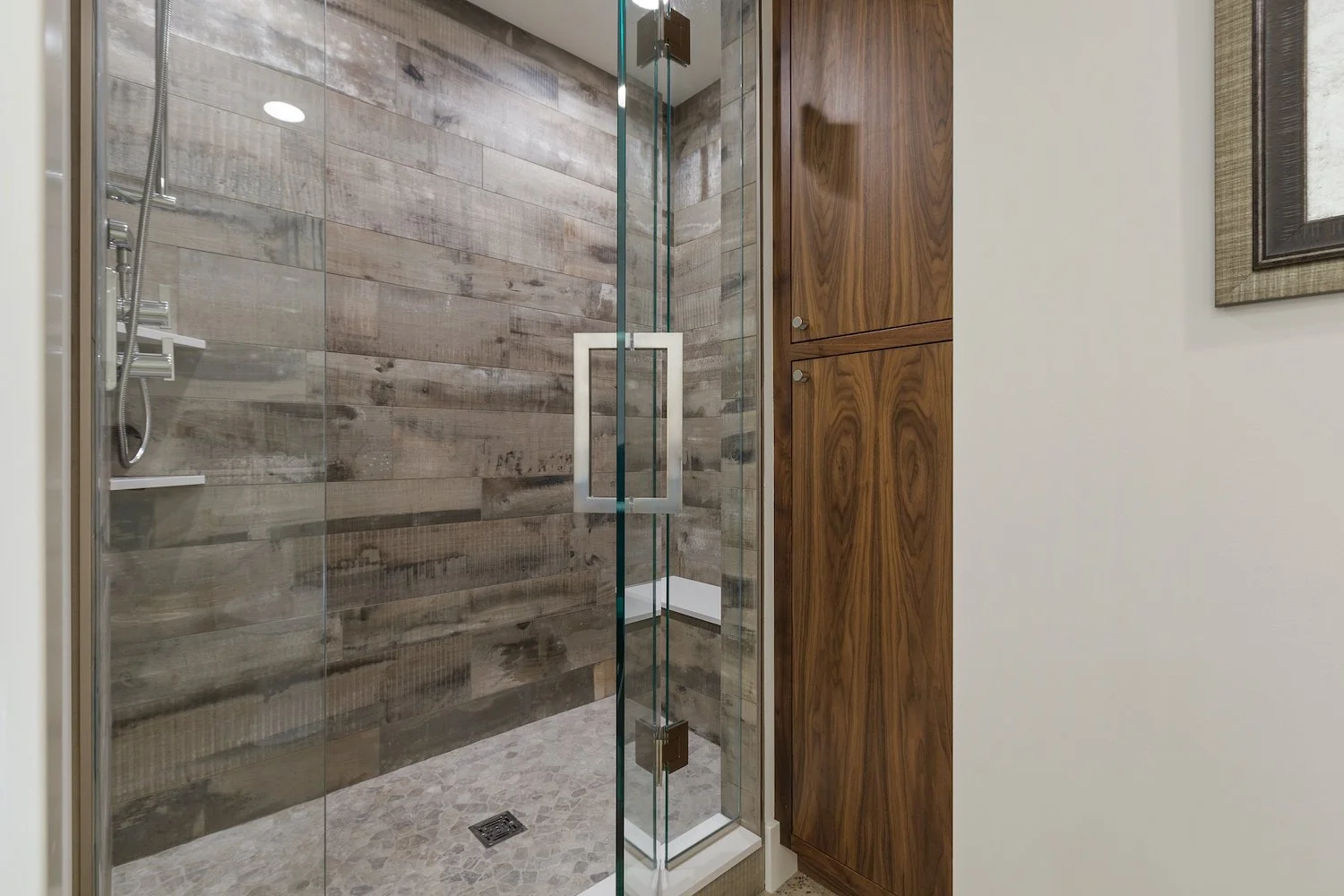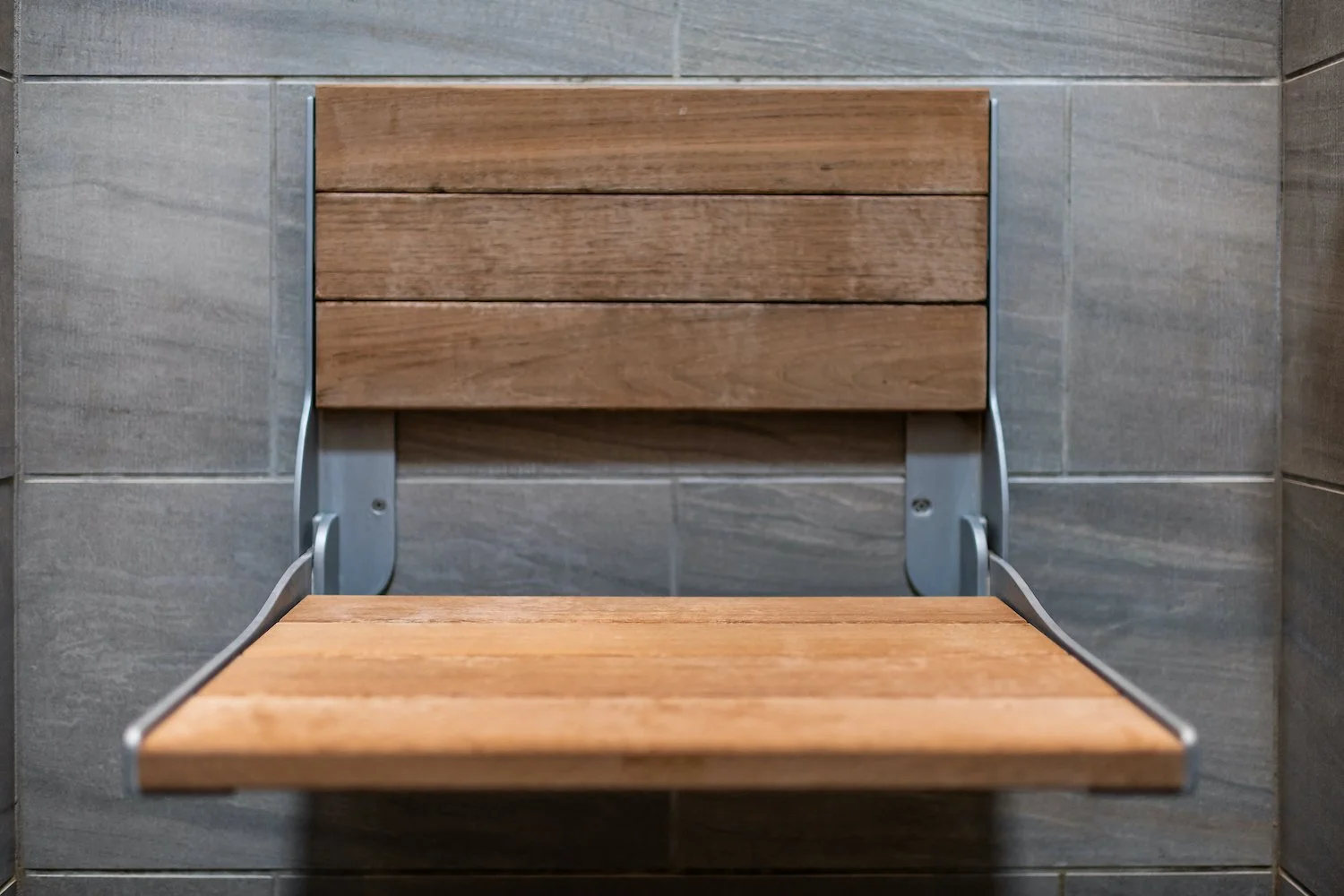Walk-In Shower Remodel: What Will It Cost You?
Are you contemplating upgrading your bathroom with a sleek, modern walk-in shower? Understanding the walk-in shower cost is crucial as you embark on this transformation. With their spacious design and easy access, walk-in showers provide both a luxurious style and practical functionality, making them a must-have feature that provides both aesthetics and accessibility. Whether you're seeking ease of cleaning, reduced slip-and-fall hazards, or seeking to enhance your home's value with distinctive features like dual shower heads or steam kits, the move to a walk-in shower strikes a perfect balance between elegant appeal and inclusive design.
As you delve into the realm of remodeling, knowing the cost of a walk-in shower and what influences it—from the choice between prefab units and custom designs, to the selection of materials and necessary labor costs—is indispensable. It's equally important to recognize the hidden expenses that could affect your overall investment. Moreover, 'how much does a walk-in shower cost' often hinges on the extent of customization, with options like antimicrobial protection or personalized tiling patterns elevating both the experience and the price tag.
In this comprehensive guide, we'll navigate through the average cost of a walk-in shower and discuss various factors like installation expenses and the cost of walk-in showers for the elderly that influence the final figure. And if you're wondering 'how much is a walk-in shower going to impact my budget?' fret not; we'll also share savvy tips on how to curb your expenditure without compromising on style or safety. Sit back as we unfold the details that will help you make an informed decision and ensure that your walk-in shower installation cost remains within your financial comfort zone.
Factors Influencing Walk-In Shower Costs
Embarking on a walk-in shower remodel can add a touch of luxury to your home, but it's vital to grasp the factors that influence the walk-in shower cost. These elements collectively determine whether you'll be looking at the lower end of the spectrum at roughly $3,500 or the higher bracket that can soar up to $15,000, with an average hovering around $9,000. Let's delve into these factors:
Type and Features of the Shower:
Custom vs. Prefabricated
Opting for a custom-designed shower will generally incur higher costs than choosing a prefabricated unit. Custom showers offer the flexibility of personalization but come with a premium.
Additional Features
Consider whether you're adding amenities like custom-made benches, innovative storage solutions, multiple shower heads, or built-in lighting. Each custom feature is a notch up on the budget ladder.
Materials and Construction
Surround Materials
Your selection here has a significant fiscal impact, with choices ranging from the more affordable acrylic or fiberglass to upscale options like cultured marble or custom glass panels.
Size and Design
A spacious walk-in shower or one with intricate design elements costs more due to the additional materials and labor.
Labor
Professionals might charge between $100-$150 per hour for their expertise.
Installation and Hidden Costs
Removing Old Fixtures
Demolition expenses to take out an existing bathtub or shower can range from $500 to $1,000.
Essential Procedures
Expect to invest in plumbing rough-in, which might cost around $2,000, and lining and waterproofing for approximately $1,500 to $2,000.
Detailed Finishing
Tiling and plumbing fixtures are pivotal to functionality and aesthetics, adding $2,000 to $3,000 and $2,500 to $5,000, respectively, to your total bill.
Permits and Regulations
Don't overlook the necessary building permits that can average between $250 and $500. It's important to budget for these legalities to ensure your remodel meets local codes and regulations.
While the allure of DIY walk-in shower installation might tempt you as a savvy way to save, remember, certain segments of the project may require professional skills—especially when it comes to plumbing and custom work. To trim down expenses without compromising quality, contemplate using prefabricated shower kits or more economical materials like porcelain tiles, which can provide substantial savings on your walk-in shower installation cost. Remember, these choices will not only influence your current expenditure but also the long-term value they add to your property.
For our senior community or those planning for future accessibility needs, the cost of walk-in showers for the elderly may include additional elements for safety and comfort, like curbless entries and grab bars. These features are crucial and should be factored into the overall budget for those requiring enhanced accessibility.
Ultimately, your walk-in shower should reflect your style while meeting your functional expectations, and understanding these cost factors ensures that your dream bathroom aligns with your financial means. Keep these details in mind as we proceed through the rest of the article, exploring other crucial elements of remodeling a walk-in shower.
Prefab vs Custom Walk-In Showers
As you weigh the options for your walk-in shower remodel, consider both prefab and custom showers as viable choices. Each has distinct traits that could influence your overall walk-in shower cost, aesthetics, and functionality of your bathroom.
Prefab Walk-in Showers are Efficient & Economical
Factory-constructed, arriving as one or multiple pieces, along with a shower pan and wall panels.
Made typically of fiberglass or acrylic.
Pros of Prefab Walk-In Showers
Cost-effective, with materials ranging between $800-$5,000.
Quicker to install, potentially offering faster renovation turnaround.
Simpler installation process aligns well with DIY projects.
Lightweight build allows for easier handling and transportation.
Cons of Prefab Walk-In Showers
Style and size options can be limited; may not perfectly match your space.
Longevity may fall short as compared to custom options.
Flexibility in design is restricted, which could challenge unique spatial needs.
Repair complications may arise, often leading to a replacement.
Environmental impact of materials used is a consideration for eco-conscious homeowners.
Contrastingly, custom walk-in showers exude elegance, tailored specifically to your taste and space:
Constructed on-site by skilled carpenters and tilers.
Offers limitless style options, including intricate design choices.
Pros of Custom Walk-In Showers
High durability from quality materials, translating to a prolonged lifespan.
Extensive design opportunities; your vision can be fully realized.
Boosts home value due to luxury and personalized appeal.
Cost of materials often ranges between $1-$400 per square foot depending on selections.
Cons of Custom Walk-In Showers
Initial cost outlay is higher, considering material and intricate labor.
Necessitates professional installation, which speaks of labor costs around $4,000.
Installation process takes more time, extending the renovation period.
Material Costs and Choices
Navigating the waters of material costs and choices for your walk-in shower remodel is akin to selecting the perfect ingredients for a cherished recipe. Your preferences in materials not only impact the walk-in shower cost but also define the ambiance and functionality of your finished renovation.
Material Selection: Balancing Quality with Cost
Shower Panels and Surrounds
The shower enclosure material plays a significant role in the aesthetics of your bathroom.
Fiberglass and Acrylic: Budget-friendly options starting from as low as $300.
Ceramic or Porcelain Tiles: These offer a conventional look with prices ranging $2-$20 per square foot, not including labor.
Cultured Marble: Expect a mid-range price point of $10-$35 per square foot, yet with a more opulent finish.
Custom Glass Panels: These can tip the higher end of your budget at $25-$50 per square foot.
Flooring
Don't forget the underfoot! Tile choices here also range widely in cost, from standard ceramic tiles at $1-$12 per square foot to premium stone at $10-$30 per square foot.
Fixtures and Features
Consider the number and style of the fixtures.
Shower Heads: While a standard shower head can cost under $50, luxury rain showers or body sprays may command $100-$500.
Custom Elements: Adding niches, benches, or even a footrest can increase costs but improve the shower experience.
Plumbing Considerations: Ensuring Functionality
The unseen but vital aspects of your walk-in shower—the plumbing and drainage—should be factored into your cost assessment. Enhancements such as adding a new water line or installing a superior drainage system require professional insight and will affect the average cost of a walk-in shower.
Basic Plumbing Modifications: Minimal changes to accommodate new fixtures may be relatively cost-effective.
Extensive Plumbing Work: Relocating plumbing or fitting specialized drainage could push costs upwards significantly, with some estimates suggesting $600-$1,600 or more depending on complexity.
Accessibility and Customization: Addressing Special Needs
Finally, when deliberating the cost of walk-in showers for the elderly or those with special needs, various elements must be accounted for that enrich safety and efficacy.
Zero-Threshold Entry: Designs without a curb to step over start at around $400-$500 for the base.
Grab Bars and Safety Features: While costs vary, grab bars can be found for between $20-$100 each, without installation.
Larger Dimensions: Space to maneuver a wheelchair, for example, necessitates a larger shower footprint and results in higher material and installation costs.
To encapsulate, while the cost of a walk-in shower can vary immensely based on materials and complexity, thoughtful planning can lead to a satisfying balance between expense and outcome. When considering how much for a walk in shower that meets your vision, bear in mind the labor for installation and the long-term value such an upgrade will contribute to your home. Always secure multiple quotes and investigate material alternatives to ensure that the walk-in shower installation cost aligns with the blueprint of your financial expectations and the return on investment for a blissful bathing sanctuary.
When do I hire a professional walk-in shower contractor?
Labor and Installation Expenses
The financial commitment that accompanies the labor and installation expenses in the process of assembling your dream walk-in shower must not be underestimated. The overall walk-in shower cost significantly pivots on this facet of remodeling:
Installation Costs Breakdown
A basic installation can set you back approximately $750 to $6,850.
Conversion of your old bathtub to a new walk-in shower typically ranges from $2,150 to $7,950.
Tiling is an essential aspect, where putting up new tiles may cost between $1,800 to $6,850 and replacing pre-established tiles might lead to an expenditure of $1,000 to $3,000.
Material and Labor Expenses
Tile materials see a vast differential with ceramic at a starting point of $7 per square foot, glass at $25, and stone at $14.
Labor costs alone can reach $400 to $2,000, depending on the intricacies involved.
Don’t forget to factor in building permits, which can range from $250 to $500.
When it comes to ensuring the function and flair of your walk-in shower, such investments are non-negotiable. But it doesn't stop there:
Subsidiary Costs Adding Up
Plumbing work may pull the strings of your purse between $600 to $1,600.
Waterproofing demands an approximate $500 to $1,000 for sheet membranes, or a more modest $50 to $800 for liquid options.
Consider accessories and additional customization aiding accessibility; their prices can soar from a mere $100 up to $2,000.
With careful planning, you can save money on your walk-in shower installation.
Given the multifaceted nature of installing a walk-in shower, professional experience is indispensable, especially when considering custom solutions. However, DIY enthusiasts adept in home improvement can reduce labor costs considerably by undertaking sections of the project themselves. In any case, judiciously cherry-picking low-cost, yet quality materials can help curb overall expenditures.
On the spectrum of expense, your financial fork in the road for labor costs in the installation of a walk-in shower typically spans from $1,000 to $3,000 on average. Both demolitions of the old framework and the installation of the new entail their bills, but careful planning and citing transparent quotes can ensure that the cost of walk-in shower installation remains a predictable entity, rather than a runaway budget.
Carefully consider each element of the expenditure; the choice of going custom or prefab, the balance of material quality against their price tags, and the level of professional involvement needed can all be leveraged to craft a cost-conscious yet beautiful remodel. Making well-informed decisions here could result in a walk-in shower cost that not only suits your aesthetic appeal and practical needs but also adheres to your set budget.
Additional Costs to Consider
When planning your walk-in shower remodel, it's essential to consider additional costs that may not be immediately evident. These costs can accumulate and significantly affect your final budget. To help stay within budget, you should account for:
Conversion and Demolition
Transitioning from a bathtub or outdated shower to a modern walk-in shower often involves conversion and demolition expenses.
For a prefabricated unit, this may cost between $1,000 and $3,000.
If you opt for a custom shower, the price can jump to $15,000 due to the complexity of the work involved.
Plumbing Adjustments
Minor modifications might only set you back around $600.
More substantial alterations, including moving pipes or installing high-end fixtures, can increase this figure to $7,000.
Waterproofing
Ensuring that your walk-in shower is properly waterproofed is crucial.
A liquid membrane may be the most cost-effective at $50 to $800, while a sheet membrane can cost up to $1,000.
Including accessibility features in your walk-in shower involves various enhancements, each with its own price tag
Curbless Entrances: For easier access, especially important for the elderly or those with mobility issues, range from $900 to $4,000.
Grab Bars and Safety Additions: Can be between $85 to $300, ensuring stability and safety within the shower.
Built-in Benches: For comfort and convenience, expect to pay $100 to $300.
Slip-resistant Flooring: To minimize accidents and add security, adds $200 to $1,000.
Shower Screens: Offering a clean and streamlined aesthetic; expect to pay $400 to $700.
Steam Systems: If you're considering adding a touch of luxury and wellness, costs can vary from $400 to $4,000.
It's critical to note that altering the layout or size of a walk-in shower during a master bathroom remodel can introduce an additional $3,000 to $5,000, especially when replacing an existing tub/shower combo with a larger, more elaborate setup.
For those dreaming of a high-end sanctuary, luxury finishes and custom designs can elevate the cost, reaching beyond $40,000. Remember, these figures can fluctuate significantly based on your geographic location, choice of materials, and prevailing labor rates. Engage with multiple professionals to gather accurate estimates and ensure that your walk-in shower cost expectations align with market pricing.
Ways to Save on Walk-In Shower Installations
Cutting costs on your walk-in shower installation doesn't mean skimping on quality. By considering a mix of practical solutions and smart shopping, you can bring down the walk-in shower cost effectively. Here are several ways to save:
Explore Prefabricated Options: By choosing a prefabricated shower kit, you could substantially lower expenses compared to a custom-built shower. Prefabs offer the convenience of all-in-one solutions, typically ranging from $700 to $3,000, making them an affordable alternative to the heftier price tags of tailor-made showers that can climb from $1,800 to $6,800.
Simplify Your Fixtures and Design:
Stick to a single shower head; multiple heads or body sprays will inflate both your plumbing costs and long-term water usage.
Select straightforward tile designs. Intricate patterns may be appealing, but they come with an upsurge in your tiler's bill due to additional labor time.
Leveraging your own skills for parts of the installation can also keep your budget in check.
DIY Where You Can: If you're handy and local codes permit, tackle some of the demolition or uncomplicated installation tasks yourself. Be aware of your limits, though, to avoid costly mistakes.
Shop Around for Quotes: Get estimates from various contractors to compare rates. Ensure they are reputable and offer detailed breakdowns of their costings.
Monitor Sales and Discounts: Keep an eye out for promotions from suppliers and ask contractors about any discounts they may offer.
Look for Tax Credits: Some regions offer rebates for energy-efficient home improvements. Research if such incentives are available for items like low-flow shower heads or energy-rated steam systems.
Right-size Your Shower: The average walk-in shower size is 60" x 30"; expanding beyond this raises the cost proportionally. Consider if extra room is a necessity or a nice-to-have.
Material Considerations: While materials like marble or cultured granite amplify the price, they also enhance durability and style. If these high-end finishes push you over budget, consider porcelain tiles or a similarly durable yet more cost-effective option.
Remember, the labor involved in installing your walk-in shower—typically ranging from $400 to $2,000—and building permits also form part of the investment. Plan for these as they are essential to a legally compliant and professionally finished upgrade. And if you're converting a tub, those costs will add to the project. Staying informed about the details and your range of choices will serve you well as you navigate the financial aspects of this renovation.
Ultimately, with a balance of personal contribution, judicious material choice, and awareness of available deals, the cost of a walk-in shower can align with your budgetary expectations. Keep these strategies in mind to achieve an average cost of walk-in shower installation that does not compromise the safety, accessibility, and aesthetic appeal of your new bathing space.
Conclusion
In conclusion, the journey to revamp your bathroom with a walk-in shower is both an investment in functionality and luxury. Our exploration of the various factors that contribute to the cost — from types of showers to materials, and labor to additional features — has provided a comprehensive foundation to help you make an informed decision that aligns with both your desires and your budget. A seamless blend of aesthetically pleasing design and practical considerations can elevate your home's value and your daily experience.
As you move forward with your bathroom remodel, remember the significance of balancing upfront costs with long-term benefits, considering the implications for both ease of access and the overall marketability of your home. Whether you choose a prefabricated model for economic efficiency or invest in custom work for a unique sanctuary, it's clear that a well-planned walk-in shower can be a transformative addition to your space. Mindfulness in planning and a willingness to adapt can ensure that this luxurious amenity is within reach, enhancing your home and lifestyle for years to come.










